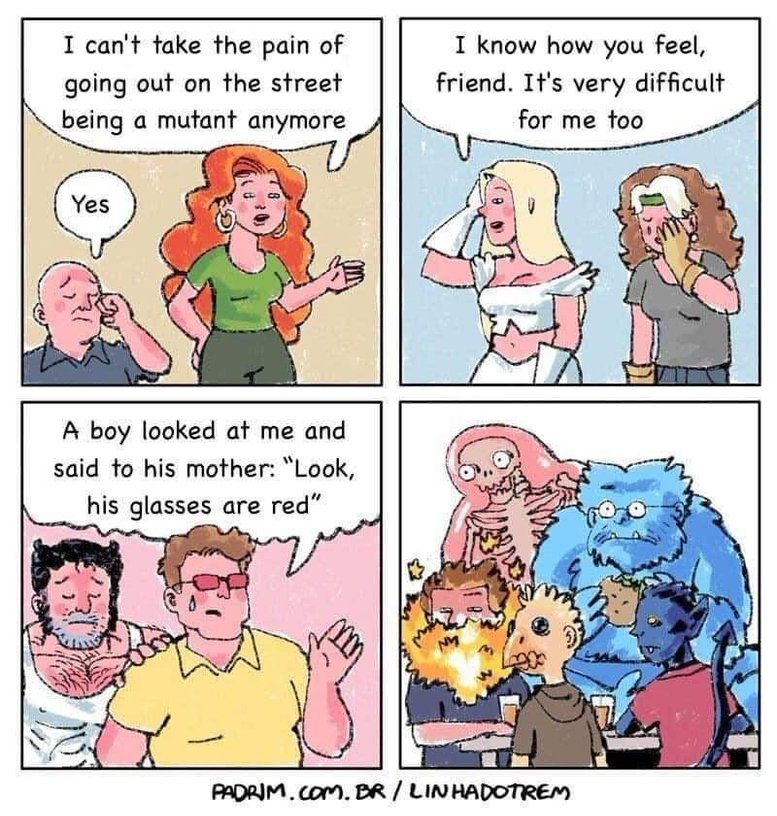this post was submitted on 23 Mar 2025
687 points (98.6% liked)
Comic Strips
15583 readers
1958 users here now
Comic Strips is a community for those who love comic stories.
The rules are simple:
- The post can be a single image, an image gallery, or a link to a specific comic hosted on another site (the author's website, for instance).
- The comic must be a complete story.
- If it is an external link, it must be to a specific story, not to the root of the site.
- You may post comics from others or your own.
- If you are posting a comic of your own, a maximum of one per week is allowed (I know, your comics are great, but this rule helps avoid spam).
- The comic can be in any language, but if it's not in English, OP must include an English translation in the post's 'body' field (note: you don't need to select a specific language when posting a comic).
- Politeness.
- Adult content is not allowed. This community aims to be fun for people of all ages.
Web of links
- !linuxmemes@lemmy.world: "I use Arch btw"
- !memes@lemmy.world: memes (you don't say!)
founded 2 years ago
MODERATORS
you are viewing a single comment's thread
view the rest of the comments
view the rest of the comments

I think its more murky than that.
There was a whole story arc about mutant growth hormone, which was derived from skin cells scraped off people like the Owl and other supers.
This MGH gave humans temporary mutant powers, and cites its origin as the X-Gene.
Confusingly though, it still tries to draw an arbitrary distinction between inherited mutants and somatic ones.
My understanding of this, is that anyone who has a non-fatal mutation of their X-factor gene develops mutant powers and abilities and, if permanent, becomes a mutant.
"Traditional" mutants inherit the X-factor, and are mutants from birth. That's the only distinction I can see, and seems like a bit of a weak distinction tbh.